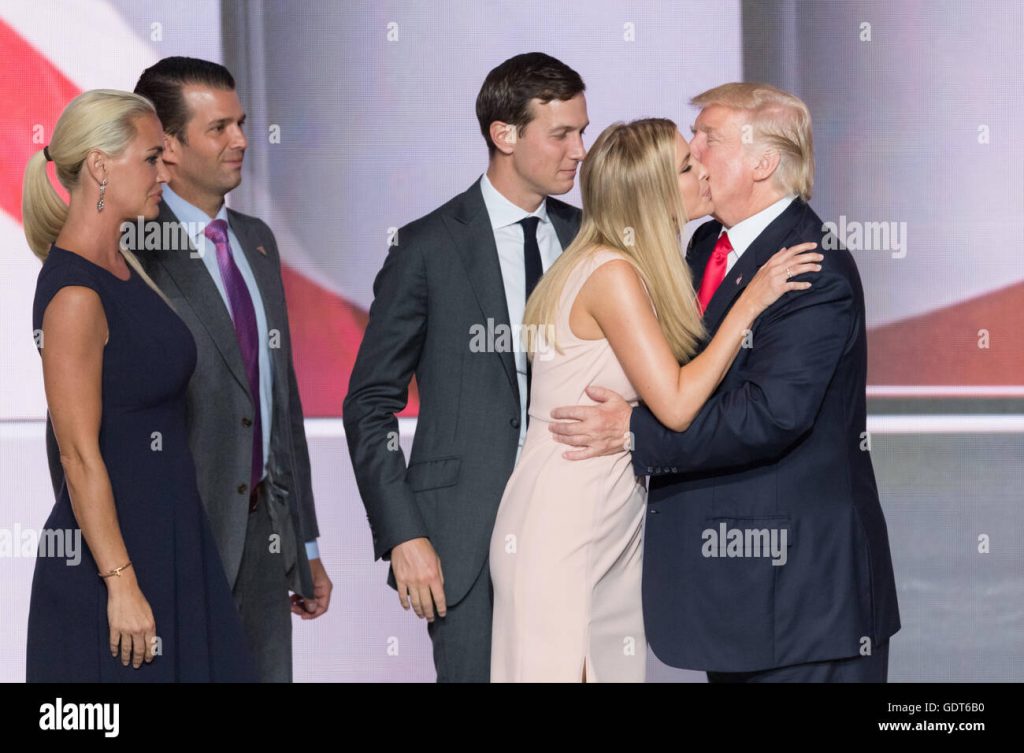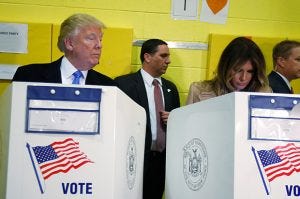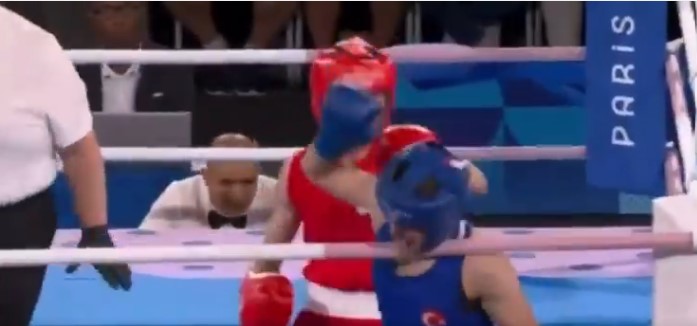On June 28th, 1988 Brian Smith, the Attorney-General of British Columbia dramatically resigned his position during a speech to the provincial legislature. Smith had been at odds with Premier Bill Vander Zalm over major policy differences with his boss. After the resignation and speech, he spoke to reporters and then attended the caucus meeting that debated the fallout of his move. He remained a leading member of that caucus for the next year and a half, at which time he resigned to accept a job in the private sector. A week later, Grace McCarthy, the deputy premier resigned, also citing concerns about policy and leadership. Both remained members of the Social Credit caucus throughout Vander Zalm’s premiership.
Upon Smith’s resignation from the Legislature in November 1989, Vander Zalm called a byelection for his seat of Oak Bay-Gordon Head. Oak Bay’s popular mayor, Susan Brice, who agreed with the criticisms of McCarthy and Smith resigned her position to seek the Social Credit nomination. She was opposed at the packed and hotly contested meeting by Kathleen Toth, an anti-abortion activist, Vander Zalm loyalist and future friend and comrade of mine.
Toth lost the nomination to Brice who would go on to campaign on the slogan, “Send a message to Bill Vander Zalm—and make me the messenger.” Vander Zalm dutifully signed Brice’s nomination papers after she won a large, democratic mandate from party members and encouraged voters to support her. She was narrowly defeated by NDP candidate Elizabeth Cull, whose ignominious future in BC politics will be covered in a future essay.
That is not to say that the Social Credit Party’s caucus survived Vander Zalm’s leadership intact. MLAs Graham Bruce, Dave Mercier, Doug Mowat and Duane Crandall all temporarily left the caucus, caucusing as “Independent Social Credit” from October 1989 to February 1990.
Vander Zalm had no love for Brice when he signed her nomination papers or for McCarthy and Smith as they grumbled from his back bench. But he suffered their membership in caucus and suffered Brice’s candidacy for one simple reason—to do anything else would have made him look weaker than he already did.
Only a generation ago, you see, democratic norms in Canada were such that not permitting a candidate to run because they openly opposed your leadership, expelling members from caucus because they did not like how you were running things would have made a leader look weak, fragile, unable to face opposition in a caucus meeting, willing to void the democratic decision of party members simply to silence dissent. The thinking was, back then, that a leader who couldn’t win a vote fair and square, couldn’t face down his internal opposition in a meeting was so weak, so incapable of the thrust and parry of politics that they were axiomatically unqualified for high office.
A true leader, a powerful person, was someone who could keep a caucus in line, a party in line, a government in line through old fashioned loyalty and charisma. If a leader were in danger of losing a vote, he would be shaking hands, slapping backs and cutting deals right in the open at a nomination meeting, party convention or caucus retreat.
If a leader were concerned about whom the members would choose to represent them in a tough seat or a seat he wanted for one of his buddies, that leader would drive or fly to the local nominating meeting, just as NDP leader Mike Harcourt did in 1990, when his preferred candidate in Nelson-Creston, Corky Evans, was facing an unexpectedly strong challenge from environmentalist Wayne Peppard, who had signed up more new members than Evans and appeared on track to win at the meeting.
Back then, candidate nominations in Canada worked like nuclear missile silos. Two keys had to be turned to launch a candidacy, one by the local members at their nominating meeting and one by the party’s leader. Typically, if the party leader didn’t like the local choice, they would suck it up and sign the nomination papers anyway, the way Vander Zalm did with Susan Brice. If the leader really couldn’t abide the local candidate, they could refuse to sign, the result being that no candidate was fielded under the party banner, not that the leader would simply handpick a local candidate.
So, Harcourt and his guys headed up to Nelson and shook the hand of every person who attended. In plain view of the assembled media, many who had followed them up from the coast, they intimidated; they negotiated; they slapped backs; they made promises; they used charisma and star power. And they won the meeting, proving that Harcourt was a strong leader, a man with the charisma and authority to change the minds and votes of local party members at a consequential meeting.
Indeed, that was how Andrea Horvath and Peter Kormos swung enough votes from the ranks of my supporters to leader-preferred Julian Heller in the NDP nomination meeting for the Saint Paul’s byelection in 2009. But that era was practically over by then. The following year, it would not be a charm offensive or Kormos trying to dislocate my shoulder from behind that would end by NDP candidacy in the federal riding of the same name. My candidacy was simply vetoed by the NDP’s newly-installed “vetting committee.”
Those changes had been underway for some time, first in the Liberal Party of Canada, where the party changed its constitution in 1996 to permit the leader to unilaterally nominate candidates without local nomination meetings. Stephen Harper’s Tories were quick to adopt the same practice in 2003, followed by the NDP in 2010, just in the nick of time to stop me!
By the time the NDP adopted these changes, the legacy media was demanding them because the theory of what made a leader strong or legitimate had wholly inverted in less than a generation.
Today, a strong leader, is understood by the Canadian establishment as someone who can and should silence all criticism within their party and expel from its caucus and its membership anyone publicly critical of them. Giving one’s critics a hearing, debating areas of disagreement, seeking to bring one’s opponents around to one’s side, tolerating different camps in one’s party and dealing fairly with all of them, resolving disputes by voting not barking orders: these things are portrayed by our legacy media as signs of weakness, incompetence and disorganization. Personalities that, in any other time, would be understood as those of petty tyrants are understood to be the epitome of democratic statesmanship, and vice versa.
This sea change in our theory of leadership may have started in party back rooms but is now everywhere. Legacy media attacked Pierre Poilievre for meeting with Freedom Convoy representatives. While he did not take up most of their demands, he has nevertheless been pilloried in the national press for three straight years for merely speaking with people whose political views are controversial. That was once the duty of every politician in a democracy. Now it is seen not merely as a political failure but a moral one.
Furthermore, he took months of abuse from the media for allowing some of his MPs to meet with visiting members of the Bundestag representing the Alliance for Germany, the government-in-waiting, as the chamber’s second-largest party. Sure AfD has some controversial policies but not long ago, (a) it was not a party leader’s business to regulate every single meeting members of his caucus took and (b) it would have been viewed as a serious lapse of political and diplomatic etiquette for a visiting delegation of foreign parliamentarians to be denied a meeting with every single member of our parliament.
What would have looked like cowardice, smallness, a lack of curiosity, a failure of basic politeness, decency and hospitality in 1995 is lauded as statesmanship in 2025. The behaviours our culture has, for centuries, belittled as weak and tyrannical are now somehow supposed to be understood as courageous, as showing leadership. People who cannot or will not face, will not confront people who have strong opinions of their own, who are comfortable only in rooms of toadies, sycophants and stooges are, by definition, incapable of leading us anywhere good because they are not true leaders.
These may be stupid, ugly, petty times but true leadership is what it has always been, no matter how hard the media works to make cowardice seem courageous and courage seem cowardly.






